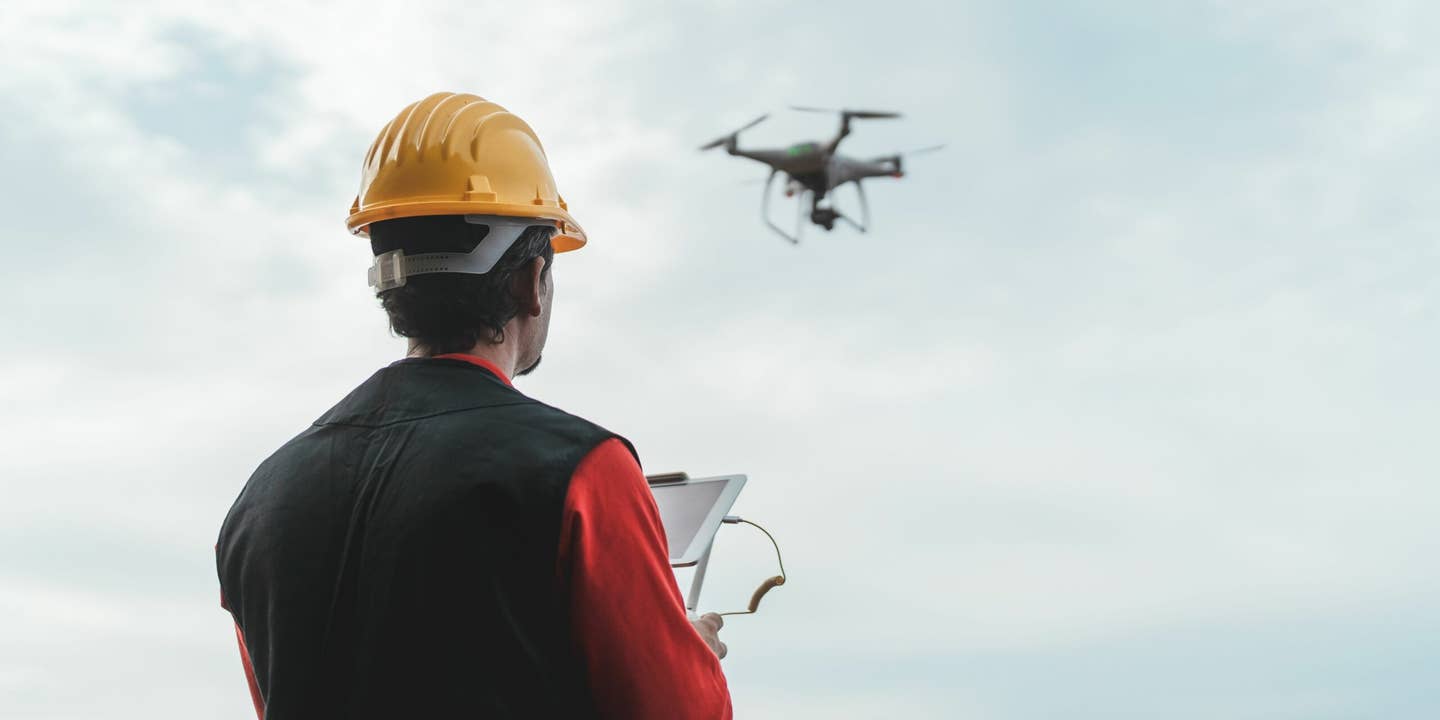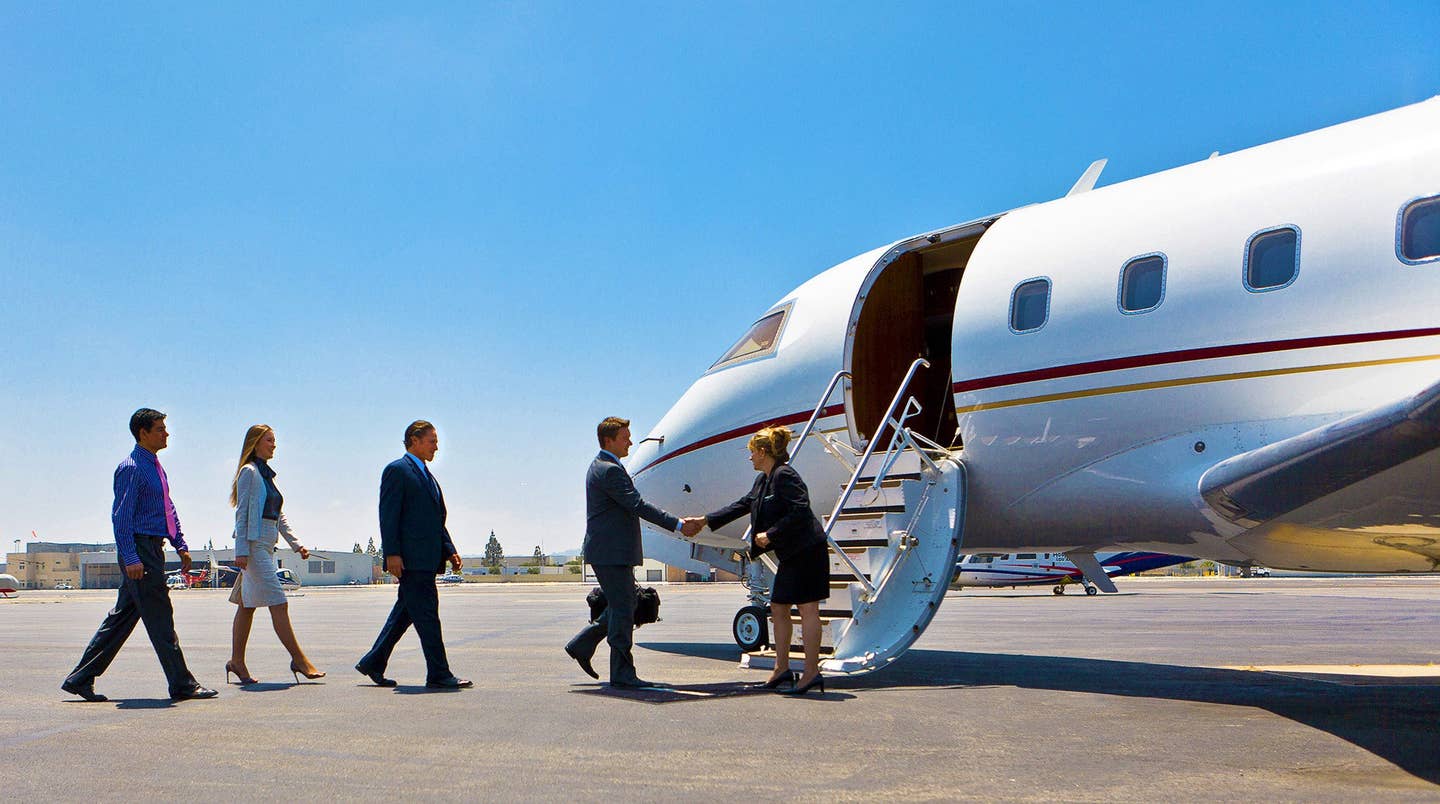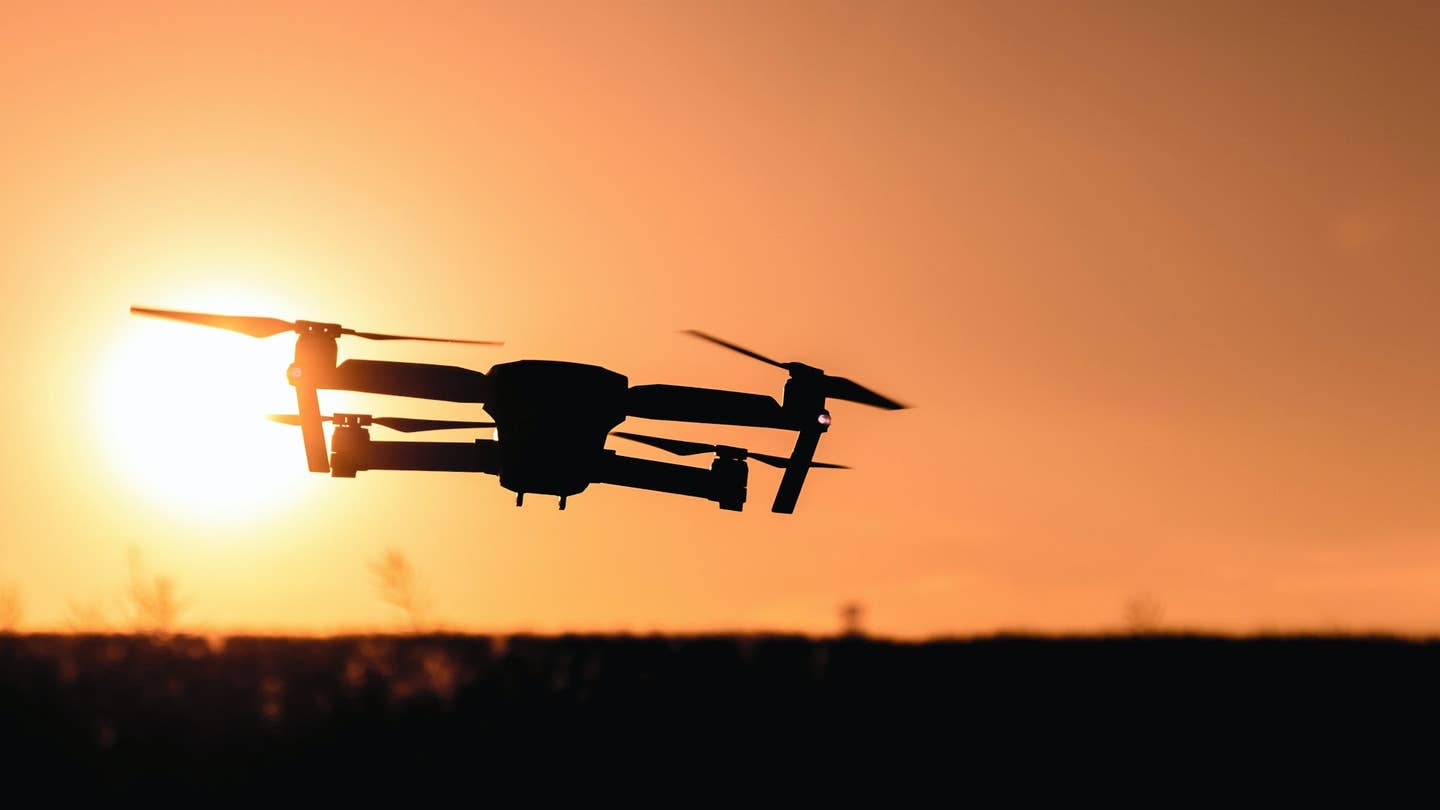
How does one become a commercial drone pilot? What are the benefits of these opportunities? Learn more about commercial drone pilot jobs here. [Credit: iStock]
Editor's note: The following article is not intended to be a ranking, but is only to serve as a list of possible options. As the saying goes, your mileage may vary.
Drones are no longer just a fun toy for hobbyists. Commercial drone pilot jobs allow you to do what you love and get paid for it. But you’ll still need to capture footage or photographs according to the task the employer assigns to you.
Here’s a look at the top commercial drone pilot jobs in the U.S. and some ideas for what to look for in the best opportunities.
Quicklook: Commercial Drone Pilot Jobs
6 Drone Pilot Jobs
The best drone pilot jobs offer flexibility, good compensation, and clear instructions about what footage you’re supposed to capture during the flight. Here’s a look at some of the top industries for drone pilot jobs.
Real Estate
Best For: Drone pilots skilled in post-production editing
The real estate market is booming in most areas and showcasing what makes a home or commercial property unique is somewhat challenging. Drone footage helps these listings stand out thanks to aerial footage that shows exactly the size of a property and even provides a 3D map to help prospective buyers envision the home. Or, the real estate company might want you to film a virtual tour of the property to provide a personal experience that helps sell the property quickly.
Income: Variable between $25-$200 an hour based on the jobs you accept
Special Benefits:
- Flexibility to take on freelance jobs that fit your needs
- Some creative license in the footage you capture and send the client
- Ability to see neat homes and film different areas of your city
- Set your rates and film in your free time
Benefits:
- Travel around your city or state to complete the work
- Work when and where you want to
- Capture footage from a variety of properties, such as malls, hotels, and residential homes
- Decide how often you want to work and take on only projects that interest you
Disadvantages:
- Some real estate transactions move fast, which means dropping everything to capture a property
- You’ll need to be able to handle post-production editing for these jobs
- Employers are generally looking for something from these drone views, but not everyone will be clear in their descriptions of the work
- Capturing footage of large properties like malls or hotels can be time-consuming and challenging for freelance work
Agriculture
Best For: Drone pilots in rural areas
Farmers looking to increase their yield turn to drone pilots to create maps that showcase areas where crops are struggling. Aerial maps guide farmers to where they should spend their time and save them tons of time in walking their farms looking for crops in need of special attention. The biggest challenge to finding work in this field is that farmers don’t know the benefits or can’t justify the expense of the aerial footage without the guarantee of better yields.
Income: On average, $40-$150 an hour
Special Benefits:
- Does not require specialized skills or training to get started
- Help farmers increase their yields and keep crops healthy
- Provide better financial security to rural towns
- Aid agriculture farms in creating drainage and floodplain maps
Benefits:
- Can be impactful to your hometown or fellow farmers
- Seasonal work makes for good freelance income
- Be instrumental in transforming an important industry
Disadvantages:
- Farmers have limited resources to pay for this work, which is making it slow to catch on
- Often requires special software to create a Normalized Difference Vegetation Index (NDVI) map
- Requires good sales skills in explaining the benefits to farmers
Journalism
Best For: Journalists looking to expand the impact of their stories
Journalism is a fast-paced industry with dwindling work opportunities. To stand out, journalists need to have extensive skills and storytelling abilities. Drones are making it possible for journalists to capture footage from areas where they previously couldn’t get close, such as disaster areas. Using a drone also allows a journalist on deadline to avoid time-consuming travel. Salaries for journalism jobs are not much and the work is somewhat nerve-wracking as it’s last-minute and puts great pressure on the journalist.
Income: $30,000-$50,000 a year
Special Benefits:
- Drone footage or images can make your news story stand out
- Freelancers in the right place at the right time can sell their footage for a decent price
- Having drone photography and videography skills can make you more attractive to employers in an industry that has limited job opportunities
- Can bring a story to life by capturing footage that used to be impossible to get
Benefits:
- Improves journalists’ career prospects
- Enables showing instead of just telling what’s happening in an area
- Is a safer option to get close to the action, such as in the case of flooding or extreme weather
- Can give photojournalists the means to capture more artistic shots
Disadvantages:
- Requires level-headedness in high-pressure situations
- Few freelance jobs available in the industry
- Low-paying industry
- Often requires high-quality cameras and equipment
Construction
Best For: Construction workers looking to become a full-time drone pilot
Conducting surveys for construction projects can get expensive and time-consuming. But drones have transformed the construction industry allowing companies to track projects and locate important safety information.
Income: Full-time salaries average $50,000-$70,000. Freelance work starts at $50 an hour, but individuals with special expertise can make up to $500 an hour
Special Benefits:
- Many jobs are full-time as construction companies need the work regularly
- Survey huge areas fast to understand what the company is working with during a project
- Construction project drone jobs can be fast to complete and might only require raw footage
- Can spare construction workers from needing to go into dangerous areas
- Developed industry making heavy use of drone pilots already, meaning you won’t need to showcase your value or do a hard sell
Benefits:
- Demonstrate project progress to clients and ensure projects stay on time and on-budget
- Guide planning efforts and showcase major project considerations
- Ample work already exists in the construction sector
- Good paying jobs are available if you have the right expertise
Disadvantages:
- Requires some construction expertise and understanding of how to conduct construction surveys
- Before becoming a construction drone pilot, you’ll likely need to go through safety training to be allowed on the property during construction projects
- This industry is not ideal for hobbyists because you’ll need special expertise
Filmmaking
Best For: Drone pilots with cinematography training
Capturing aerial footage for movies and TV shows used to be an expensive endeavor that required a helicopter and special equipment. But drones have changed that. Now drone pilots can capture aerial scenes with incredible ease and speed. The work is somewhat more challenging to come by though and you’ll need to live in areas where filming is more popular, such as in Los Angeles near the film studios.
Income: $200-$500 an hour
Special Benefits:
- High pay range compared to other commercial drone pilot jobs
- Can serve as your main job but with freelance flexibility
- Opportunity to use creative skills
- Specialized industry with less competition compared to more generalized drone pilot industries
Benefits:
- Fascinating industry to get involved with
- Opportunity to film stock aerial footage and sell it to filmmaking industry
- Decent job security since the film industry operates year-round
Disadvantages:
- Most projects require that you have a drone insurance policy, though this is a good idea no matter what projects you take on
- You’ll need to have high-end equipment and software, which are quite pricey
- Filmmaking jobs require an eye for capturing a scene or aerial view so you’ll need special cinematography training to succeed in this field
- You won’t find filmmaking work everywhere
Insurance
Best For: Freelance drone pilots
Drones have completely changed the insurance business. Companies used to employ adjusters in every area where they sold insurance policies. And the adjusters needed equipment and training for analyzing property damage even when it takes place on the roof of a home. Now drone operators can film the damage and send it to the main office where a team of centralized adjusters review it to determine the claim’s validity.
Income: Starts at $70 per property inspected
Special Benefits:
- Does not require special expertise like construction or filmmaking jobs do
- Can be fast, efficient work if you need to film multiple homes in the same neighborhood
- Good side income for hobbyists looking to fund their interest in drones
- Flexible for drone pilot freelancers
Benefits:
- Anyone with a drone that includes a decent camera can get started in this work
- Drone pilots send raw footage without the need for editing
- Easy and fast industry to get started working in
- Pickup work when and where you want to
Disadvantages:
- Work in insurance is generally seasonal
- Is not the highest paying industry for drone pilots
- Challenging to make a living solely doing drone inspections
What Is a Commercial Drone Pilot?
Commercial drone pilots fly drones for companies in a variety of industries. These pilots can be full-time employees for the company or they might be freelancers looking to monetize their hobby.
Working as a commercial drone pilot requires operators to capture images or video footage of an area. Some jobs also require pilots to be skilled in post-production editing.
How Does Being a Commercial Drone Pilot Work?
To become a commercial drone pilot, you’ll need to take several steps.
- Purchase a drone
- Obtain your drone pilot license through the Federal Aviation Administration (FAA) and any other local licenses based on your local guidelines.
- Complete an FAA knowledge test to showcase your expertise in flight restrictions, weather plans, maintenance, and more.
- Earn your remote pilot certificate and complete the FAA background check.
- Register your drone with the FAA.
- Fly your drone, volunteer your time, and create a portfolio to acquire the necessary skills to sell your services.
- Review the career or freelance opportunities available to drone pilots and create a direction for your career.
- Set your rates and spread the word about your services.
What to Consider As a Commercial Drone Pilot
Before you get started as a commercial drone pilot, you should learn more about the industry and these top considerations.
Demand
Commercial drone pilot jobs ebb and flow based on seasonality and other factors. If you’re planning for this job to be your main gig, you’ll need to be prepared to deal with changes in income based on the season and have the discipline to put money away during good times for business so you can live off of it during the slower seasons.
Licenses
Before you begin your career as a drone pilot, you’ll need to obtain the necessary licenses. To start, you’ll need an FAA certificate. Then you need to research license requirements for your area.
Location
To find the best work, in the industry of your choice you might need to travel or take up residence where there are ample work opportunities. For example, drone pilots that focus on filmmaking are best served living in Los Angeles. Agriculture drone pilots should live in more rural areas where there are plenty of farms to sell their services to.
Camera Quality
Entry-level drones generally do not have the camera quality necessary to use it to capture commercial images and video. To sell your services, you’ll need to have a drone with excellent camera quality, which means you’ll have significant start-up costs.
Freelancing
Freelancing is a better career route for drone pilots because full-time work is hard to come by. By freelancing, you can sell your services to multiple companies to keep regular work. This will require some business skills though and an ability to market and sell your services.
Build a Flexible Drone Pilot Career
Commercial drone pilots enjoy incredible work flexibility and the ability to do what they love for a living. However, it also requires careful consideration of many key factors before making a career out of flying a drone. To learn about the best drones on the market and stay up to date on industry news, subscribe to FLYING Magazine.
Is There a Demand for Drone Pilots?
Yes, drone pilots serve many industries but most jobs are freelance or contract positions. Finding full-time work as a drone pilot is challenging as there are few opportunities.
How Much Do Drone Pilots Make?
Drone pilots make anywhere from $40-$500 an hour based on the industry and the specifics of the job.
Can You Make a Living as a Drone Pilot?
Yes, you can make a living as a drone pilot, but you’ll have to deal with changes in demand based on seasonality and other factors, which can make it challenging to turn it into your full-time career. Many drone pilots are freelancers who sell their skills on

Subscribe to Our Newsletter
Get the latest FLYING stories delivered directly to your inbox






